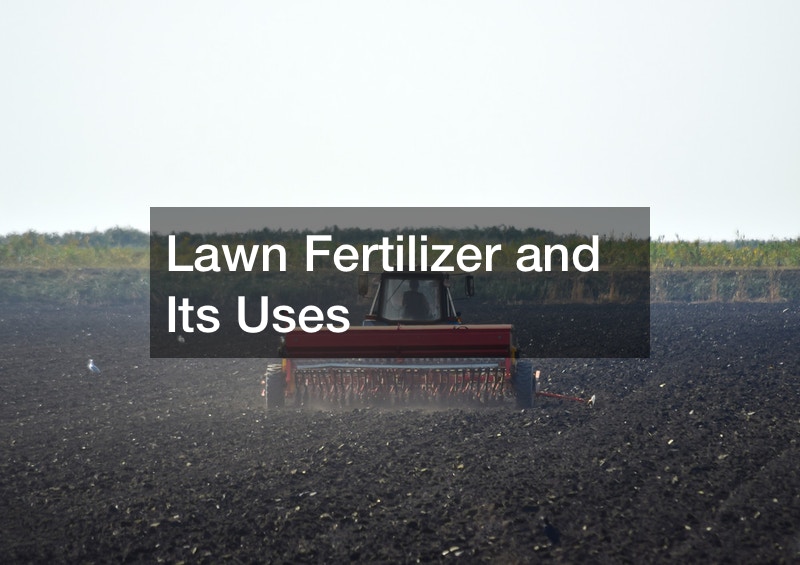Lawn Fertilizer and Its Uses

Almost all lawn fertilizers contain one or more of the three major nutrients required for a lawn’s optimum growth. The nutrients Nitrogen (N), Phosphorus (P), and Potassium (K) are most commonly found in grass fertilizer. Not only are they important to plant growth, but they are also usually the most deficient in natural soils. Each nutrient serves a different purpose for promoting ideal plant growth.
There are two main factors that contribute to what nutrients your grass needs.
One is the type of grass that is planted in your yard. The other is the existing nutrients available naturally in your lawn’s soil. Both of these factors play an integral role in determining which nutrients your fertilizer should contain.
Type of grass—Grasses come in warm-season and cool-season varieties. A warm-season grass that thrives in a Southern state needs different amounts of nutrients than a cool-season grass that grows best in the Pacific Northwest. Knowing what types of grass are planted in your yard can help you choose the right lawn fertilizer.
Soil properties—Your soil has one of the largest effects on your fertilizer needs. It’s generally recommended that you perform a soil test to determine which nutrients your soil lacks and the pH level. These simple tests give you a detailed breakdown of your lawn’s soil by collecting a sample and mailing it to a lab.
Scams are one problem to watch for, as is incompetence. Some members wrote about service technicians destroying their lawns by applying fertilizer without a spreader, or misdiagnosing lawn problems. Double-check your lawn fertilizing service.
.
